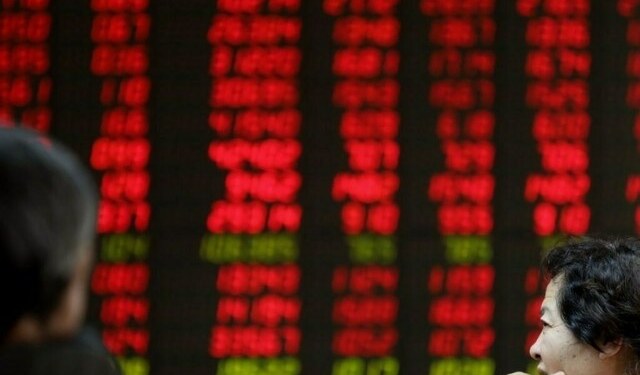NEW YORK: The dollar slipped against a basket of currencies on Thursday and hit a two-week low against the Japanese yen, after U.S. President Donald Trump scrapped a summit meeting with North Korean leader Kim Jong Un and as traders booked profits following the greenback’s recent rally.
Trump called off a historic summit with the North Korean leader citing Pyongyang’s “open hostility,” and warned that the U.S. military was ready in the event of any reckless acts by North Korea.
“There is a slightly more risk-off mood in global financial markets as a result of that announcement,” said Omer Esiner, chief market analyst at Commonwealth Foreign Exchange Inc in Washington.
The yen, which tends to rise in times of market turbulence, hit a two-week high against the greenback. The dollar was down 0.75 percent at 109.24 yen.
“At the same time, it became a broader dollar sell-off, not just a safe-haven move,” said Paresh Upadhyaya, director of currency strategy at Amundi Pioneer Investments in Boston.
“I wonder if it’s because the markets are now repricing a degree of geopolitical risk that was starting to unwind in a very dramatic manner earlier in May, as signs of a summit were growing,” he said.
The dollar index, which measures the greenback against a basket of six other currencies, was down 0.26 percent at 93.762. Despite the weakness on Thursday, the index is up about 2 percent for the month, on pace for its second straight month of gains.
The dollar’s rally had already begun to lose steam following the release on Wednesday of the minutes of the Federal Reserve’s last policy meeting.
While most policymakers thought it likely another U.S. interest rate increase would be warranted – in line with market expectations – the minutes showed the Fed would tolerate inflation rising above its goal for a time.
“In light of the dollar’s impressive rally now that stretches back to mid April, the minutes provided a bit of an excuse to take some money off the table ahead of the holiday weekend here,” said Esiner.
The euro was up 0.24 percent at $1.1724. Still, it was set to be down for a sixth consecutive week against the dollar, its longest such streak since January 2015, hobbled by worries over a deepening economic slowdown in the currency bloc.
The leader of the far-right League, a partner in Italy’s planned coalition government, insisted that eurosceptic economist Paolo Savona should be named economy minister. This pressured the euro, limiting its gains for the day.
Sterling rose after upbeat British retail sales data, but eased off session highs due to persistent concerns over Brexit negotiations.
Turkey’s lira weakened more than 2 percent, retreating from hefty gains made on Wednesday when the central bank raised interest rates 300 basis points.
Source: Brecorder



























